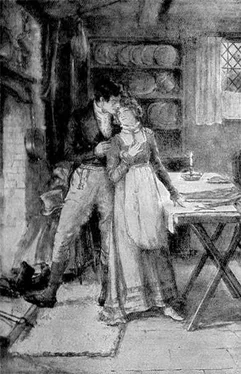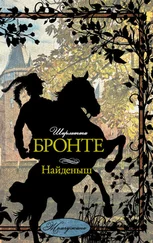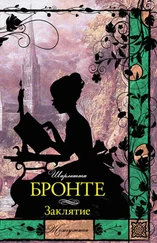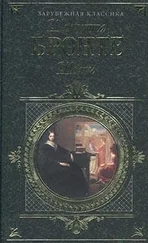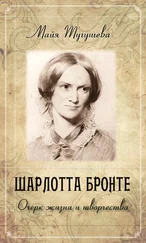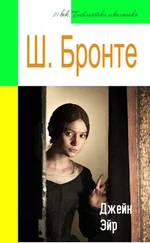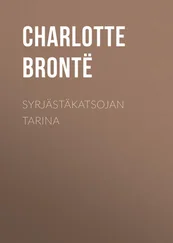Шарлотта Бронте - Shirley
Здесь есть возможность читать онлайн «Шарлотта Бронте - Shirley» весь текст электронной книги совершенно бесплатно (целиком полную версию без сокращений). В некоторых случаях можно слушать аудио, скачать через торрент в формате fb2 и присутствует краткое содержание. Год выпуска: 2014, Издательство: epubBooks Classics, Жанр: Классическая проза, на английском языке. Описание произведения, (предисловие) а так же отзывы посетителей доступны на портале библиотеки ЛибКат.
- Название:Shirley
- Автор:
- Издательство:epubBooks Classics
- Жанр:
- Год:2014
- ISBN:нет данных
- Рейтинг книги:3 / 5. Голосов: 1
-
Избранное:Добавить в избранное
- Отзывы:
-
Ваша оценка:
- 60
- 1
- 2
- 3
- 4
- 5
Shirley: краткое содержание, описание и аннотация
Предлагаем к чтению аннотацию, описание, краткое содержание или предисловие (зависит от того, что написал сам автор книги «Shirley»). Если вы не нашли необходимую информацию о книге — напишите в комментариях, мы постараемся отыскать её.
Shirley — читать онлайн бесплатно полную книгу (весь текст) целиком
Ниже представлен текст книги, разбитый по страницам. Система сохранения места последней прочитанной страницы, позволяет с удобством читать онлайн бесплатно книгу «Shirley», без необходимости каждый раз заново искать на чём Вы остановились. Поставьте закладку, и сможете в любой момент перейти на страницу, на которой закончили чтение.
Интервал:
Закладка:
"Pooh! my dear sir, they are all so," was the reply he got for his pains. "But Horsfall has this virtue," added the surgeon—"drunk or sober, she always remembers to obey me ."
At length the latter autumn passed; its fogs, its rains withdrew from England their mourning and their tears; its winds swept on to sigh over lands far away. Behind November came deep winter—clearness, stillness, frost accompanying.
A calm day had settled into a crystalline evening. The world wore a North Pole colouring; all its lights and tints looked like the reflets [1] Find me an English word as good, reader, and I will gladly dispense with the French word. "Reflections" won't do.
of white, or violet, or pale green gems. The hills wore a lilac blue; the setting sun had purple in its red; the sky was ice, all silvered azure; when the stars rose, they were of white crystal, not gold; gray, or cerulean, or faint emerald hues—cool, pure, and transparent—tinged the mass of the landscape.
What is this by itself in a wood no longer green, no longer even russet, a wood neutral tint—this dark blue moving object? Why, it is a schoolboy—a Briarfield grammar–school boy—who has left his companions, now trudging home by the highroad, and is seeking a certain tree, with a certain mossy mound at its root, convenient as a seat. Why is he lingering here? The air is cold and the time wears late. He sits down. What is he thinking about? Does he feel the chaste charm Nature wears to–night? A pearl–white moon smiles through the gray trees; does he care for her smile?
Impossible to say; for he is silent, and his countenance does not speak. As yet it is no mirror to reflect sensation, but rather a mask to conceal it. This boy is a stripling of fifteen—slight, and tall of his years. In his face there is as little of amenity as of servility, his eye seems prepared to note any incipient attempt to control or overreach him, and the rest of his features indicate faculties alert for resistance. Wise ushers avoid unnecessary interference with that lad. To break him in by severity would be a useless attempt; to win him by flattery would be an effort worse than useless. He is best let alone. Time will educate and experience train him.
Professedly Martin Yorke (it is a young Yorke, of course) tramples on the name of poetry. Talk sentiment to him, and you would be answered by sarcasm. Here he is, wandering alone, waiting duteously on Nature, while she unfolds a page of stern, of silent, and of solemn poetry beneath his attentive gaze.
Being seated, he takes from his satchel a book—not the Latin grammar, but a contraband volume of fairy tales. There will be light enough yet for an hour to serve his keen young vision. Besides, the moon waits on him; her beam, dim and vague as yet, fills the glade where he sits.
He reads. He is led into a solitary mountain region; all round him is rude and desolate, shapeless, and almost colourless. He hears bells tinkle on the wind. Forth–riding from the formless folds of the mist dawns on him the brightest vision—a green–robed lady, on a snow–white palfrey. He sees her dress, her gems, and her steed. She arrests him with some mysterious question. He is spell–bound, and must follow her into fairyland.
A second legend bears him to the sea–shore. There tumbles in a strong tide, boiling at the base of dizzy cliffs. It rains and blows. A reef of rocks, black and rough, stretches far into the sea. All along, and among, and above these crags dash and flash, sweep and leap, swells, wreaths, drifts of snowy spray. Some lone wanderer is out on these rocks, treading with cautious step the wet, wild seaweed; glancing down into hollows where the brine lies fathoms deep and emerald clear, and seeing there wilder and stranger and huger vegetation than is found on land, with treasure of shells—some green, some purple, some pearly—clustered in the curls of the snaky plants. He hears a cry. Looking up and forward, he sees, at the bleak point of the reef, a tall, pale thing—shaped like man, but made of spray—transparent, tremulous, awful. It stands not alone. They are all human figures that wanton in the rocks—a crowd of foam–women—a band of white, evanescent Nereids.
Hush! Shut the book; hide it in the satchel. Martin hears a tread. He listens. No—yes. Once more the dead leaves, lightly crushed, rustle on the wood path. Martin watches; the trees part, and a woman issues forth.
She is a lady dressed in dark silk, a veil covering her face. Martin never met a lady in this wood before—nor any female, save, now and then, a village girl come to gather nuts. To–night the apparition does not displease him. He observes, as she approaches, that she is neither old nor plain, but, on the contrary, very youthful; and, but that he now recognizes her for one whom he has often wilfully pronounced ugly, he would deem that he discovered traits of beauty behind the thin gauze of that veil.
She passes him and says nothing. He knew she would. All women are proud monkeys, and he knows no more conceited doll than that Caroline Helstone. The thought is hardly hatched in his mind when the lady retraces those two steps she had got beyond him, and raising her veil, reposes her glance on his face, while she softly asks, "Are you one of Mr. Yorke's sons?"
No human evidence would ever have been able to persuade Martin Yorke that he blushed when thus addressed; yet blush he did, to the ears.
"I am," he said bluntly, and encouraged himself to wonder, superciliously, what would come next.
"You are Martin, I think?" was the observation that followed.
It could not have been more felicitous. It was a simple sentence—very artlessly, a little timidly, pronounced; but it chimed in harmony to the youth's nature. It stilled him like a note of music.
Martin had a keen sense of his personality; he felt it right and sensible that the girl should discriminate him from his brothers. Like his father, he hated ceremony. It was acceptable to hear a lady address him as "Martin," and not Mr. Martin or Master Martin, which form would have lost her his good graces for ever. Worse, if possible, than ceremony was the other extreme of slipshod familiarity. The slight tone of bashfulness, the scarcely perceptible hesitation, was considered perfectly in place.
"I am Martin," he said.
"Are your father and mother well?" (it was lucky she did not say papa and mamma ; that would have undone all); "and Rose and Jessie?"
"I suppose so."
"My cousin Hortense is still at Briarmains?"
"Oh yes."
Martin gave a comic half–smile and demi–groan. The half–smile was responded to by the lady, who could guess in what sort of odour Hortense was likely to be held by the young Yorkes.
"Does your mother like her?"
"They suit so well about the servants they can't help liking each other."
"It is cold to–night."
"Why are you out so late?"
"I lost my way in this wood."
Now, indeed, Martin allowed himself a refreshing laugh of scorn.
"Lost your way in the mighty forest of Briarmains! You deserve never more to find it."
"I never was here before, and I believe I am trespassing now. You might inform against me if you chose, Martin, and have me fined. It is your father's wood."
"I should think I knew that. But since you are so simple as to lose your way, I will guide you out."
"You need not. I have got into the track now. I shall be right. Martin" (a little quickly), "how is Mr. Moore?"
Martin had heard certain rumours; it struck him that it might be amusing to make an experiment.
"Going to die. Nothing can save him. All hope flung overboard!"
She put her veil aside. She looked into his eyes, and said, "To die!"
"To die. All along of the women, my mother and the rest. They did something about his bandages that finished everything. He would have got better but for them. I am sure they should be arrested, cribbed, tried, and brought in for Botany Bay, at the very least."
Читать дальшеИнтервал:
Закладка:
Похожие книги на «Shirley»
Представляем Вашему вниманию похожие книги на «Shirley» списком для выбора. Мы отобрали схожую по названию и смыслу литературу в надежде предоставить читателям больше вариантов отыскать новые, интересные, ещё непрочитанные произведения.
Обсуждение, отзывы о книге «Shirley» и просто собственные мнения читателей. Оставьте ваши комментарии, напишите, что Вы думаете о произведении, его смысле или главных героях. Укажите что конкретно понравилось, а что нет, и почему Вы так считаете.
